BAGHDAD -Iraqi reporters took advantage of another opportunity to meet with the U.S. Army commanders operating in northwest Baghdad and Abu Ghraib.
In a "round table" setting, Col. Joseph Martin, commander, 2nd Heavy Brigade Combat Team "Dagger," 1st Infantry Division, Multi-National Division-Baghdad, and four battalion commanders in the brigade, hosted the second media-focused event April 26 since the brigade arrived in northwest Baghdad in early October 2008.
For U.S. commanders, it was an effort to inform the Iraqi public of the joint security mission with the Iraqi Security Forces, the essential services and civil capacity projects in the area and the continuing implementations of the signed security agreement between the government of Iraq and the U.S. government.
The Security Agreement, enacted in January of this year, states that Coalition Forces will "pull out of the city" by June 31.
Many members of the Iraqi press wanted to know exactly what that means to not only the population of northwest Baghdad, but to the Dagger Brigade Soldiers.
"We are still in negotiation with the government of Iraq as to how things will work beyond the 30th of June," Martin said. "Many of the Soldiers in the cities will move to Victory Base Complex or other locations. Anything that is remaining of the cities will be at the request of the Iraqi Security Forces."
Along with the security agreement, the members of the media were equally concerned of the recent suicide attacks at the Kadamiyah Shrine, which killed more than 60 people and wounded about 120.
"It was a regrettable tragedy what happened two days ago at the Kadamiyah Shrine; my unit's heart goes out to all those families who suffered losses that day," said Lt. Col. John Vermeesch, a native of Marshall, Mich., commander, 1st Combined Arms Battalion, 18th Infantry Regiment, 2nd HBCT, who operates in Kadamiyah. "We continue to gather evidence with our ISF partners to determine what terrorist group was responsible."
The Dagger commander continued by saying that hatred for peace and democracy is still present in Iraq.
"Nothing is perfect; the enemy still exists, but the enemy is weaker than he ever has been before," he said.
Martin added that over two years ago an average of 30 attacks per day occurred in the area the Dagger Brigade operates in.
"Now this area experiences over 2.3 attacks per day," said Martin. "[It is still] an unacceptable number, but a significant improvement from January 2007."
In other improving areas, he also explained how the Dagger Brigade has conducted over 437 essential service projects, such as electricity improvement, sewage removal and reconstruction, by comparing the progress to an almost-full bottle of drinking water.
"When it comes to essential services, if the [Iraqi] government is able to at this point in time fill [the water bottle] up to 90 percent, we will be able to do what we can to try and fill it to the top," he said. "This way the people receive the services while the government continues to improve.
As the government becomes more sustainable, Martin said the ISF are doing the same.
"You look at the leadership of a brigade that commands essentially 5,000 Soldiers, but in partnership with our Iraqi Security Force partners we now are 21,000 plus strong," said Martin. "We are there to partner with them, sustain, support, advise and assist them in any way we can to be successful, but we are there side-by-side with our Iraqi Security partners."
After the conference, the Iraqi media again had a chance to sit and talk with the leaders of the Dagger Brigade over lunch with an understanding of how the brigade continues to help secure and develop northwest Baghdad and Abu Ghraib's environment.
"We all come here with one simple agenda," said Martin. "That agenda is so that progress can continue over time."
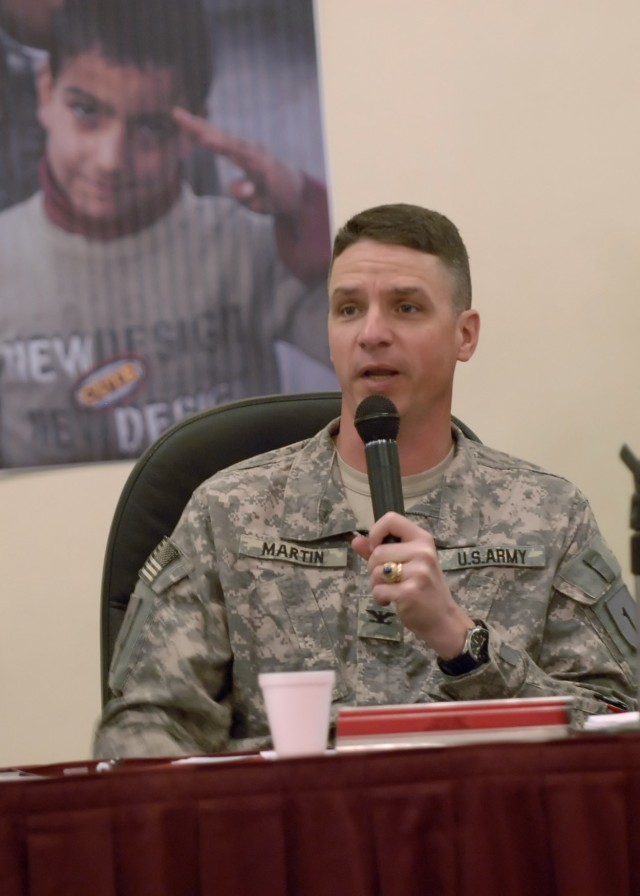
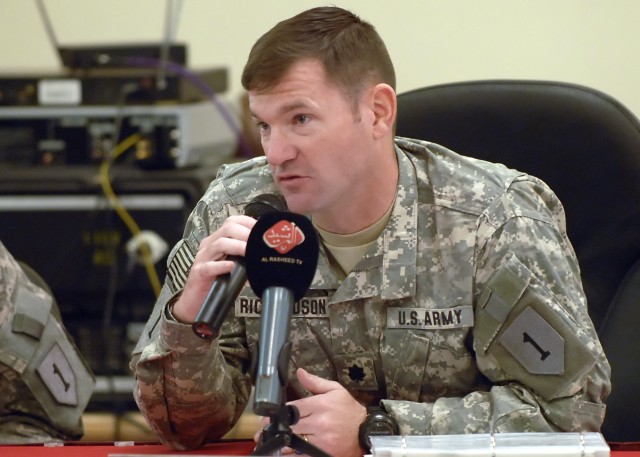
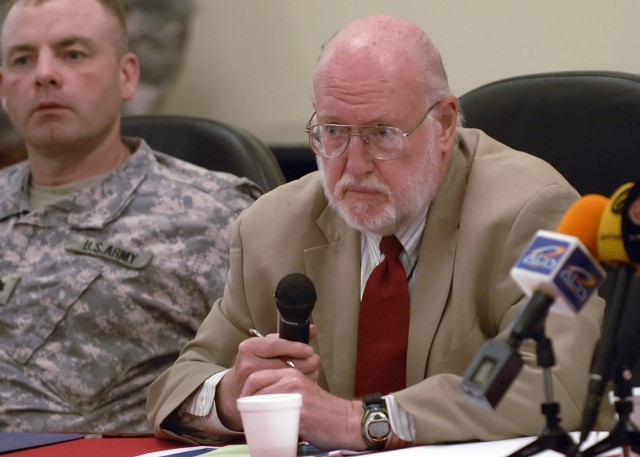
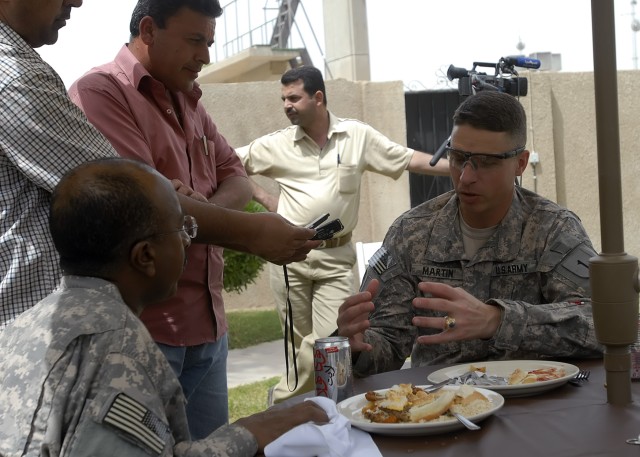

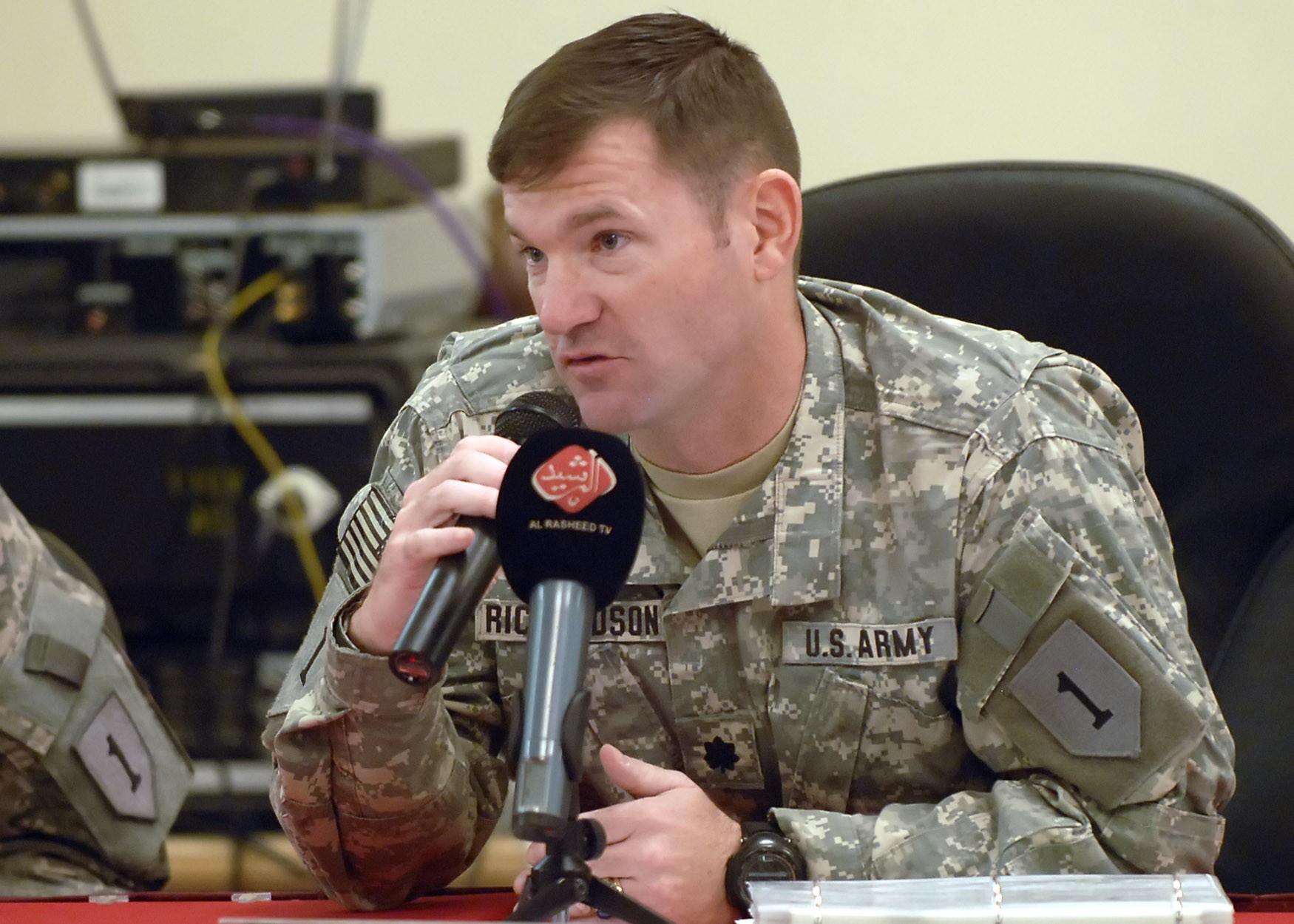
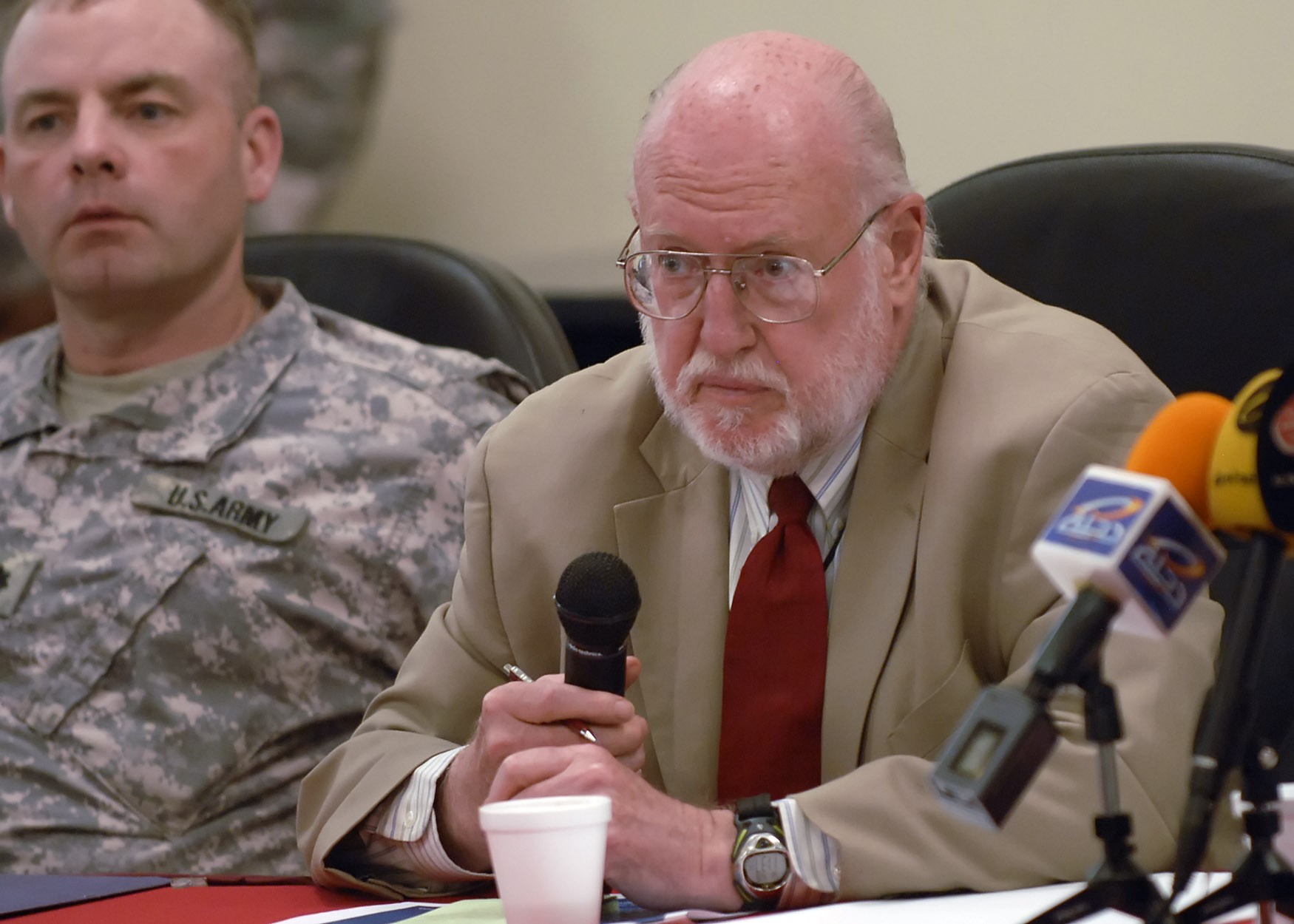
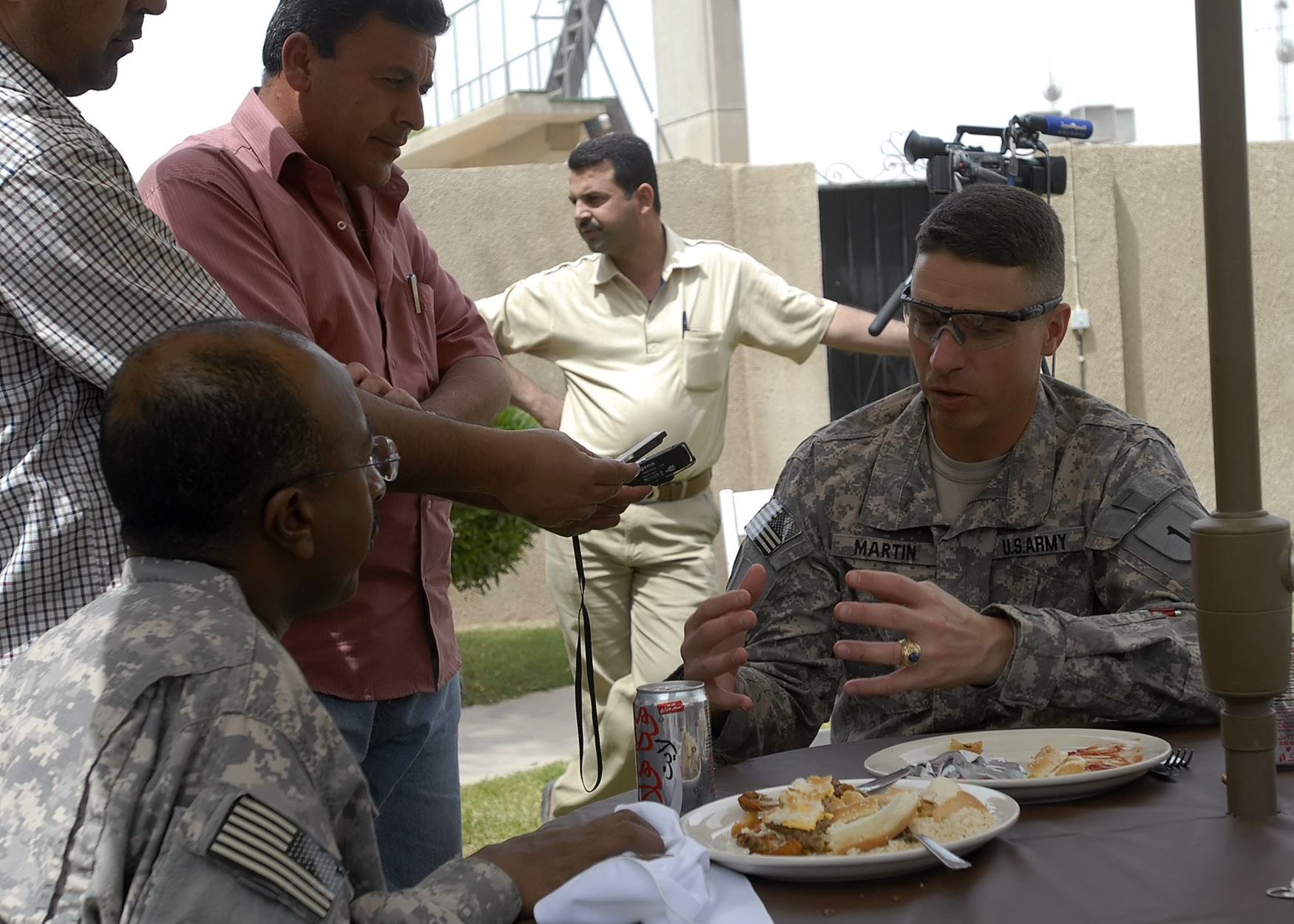
Social Sharing